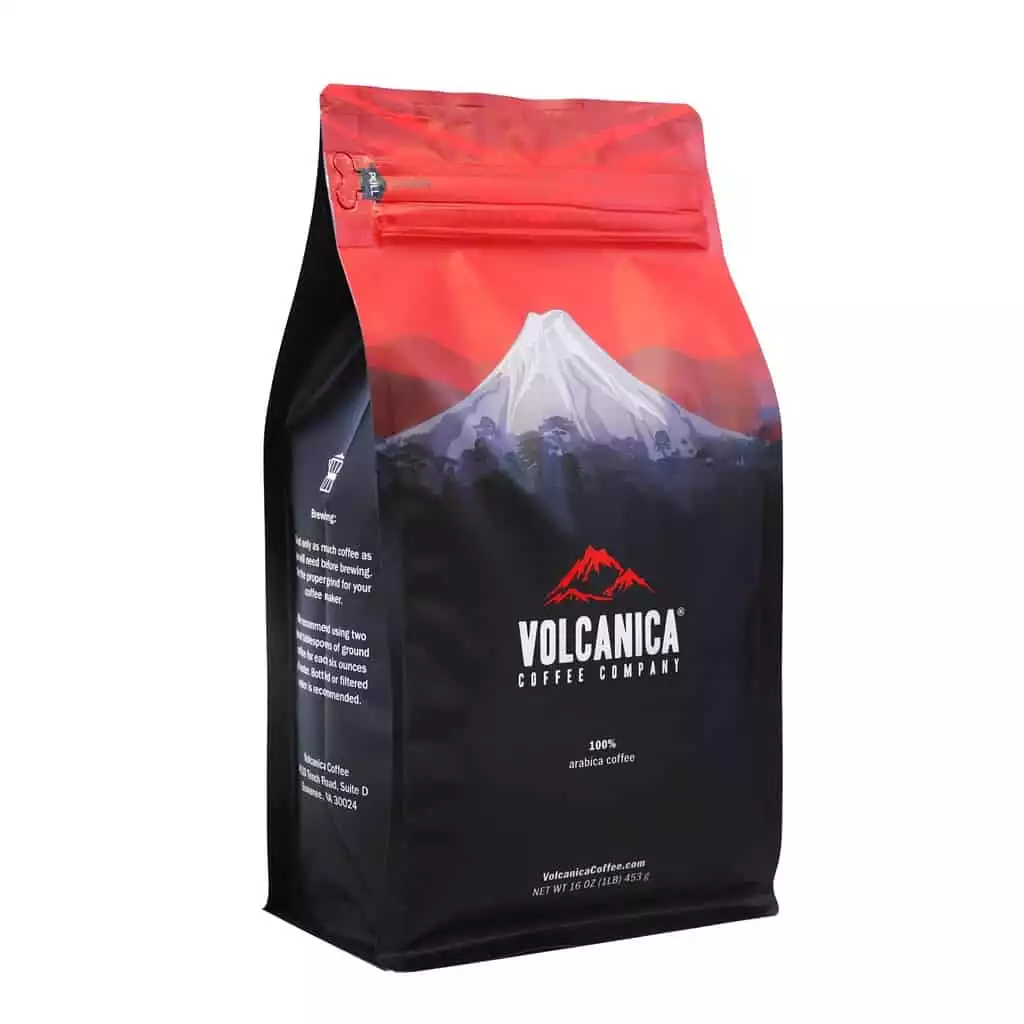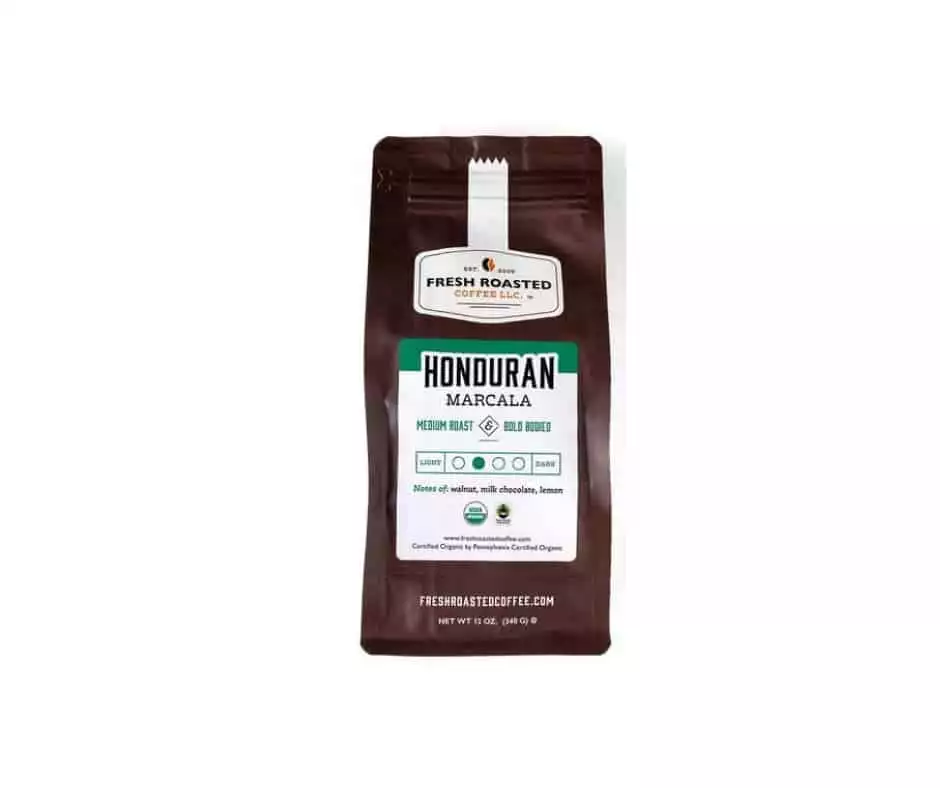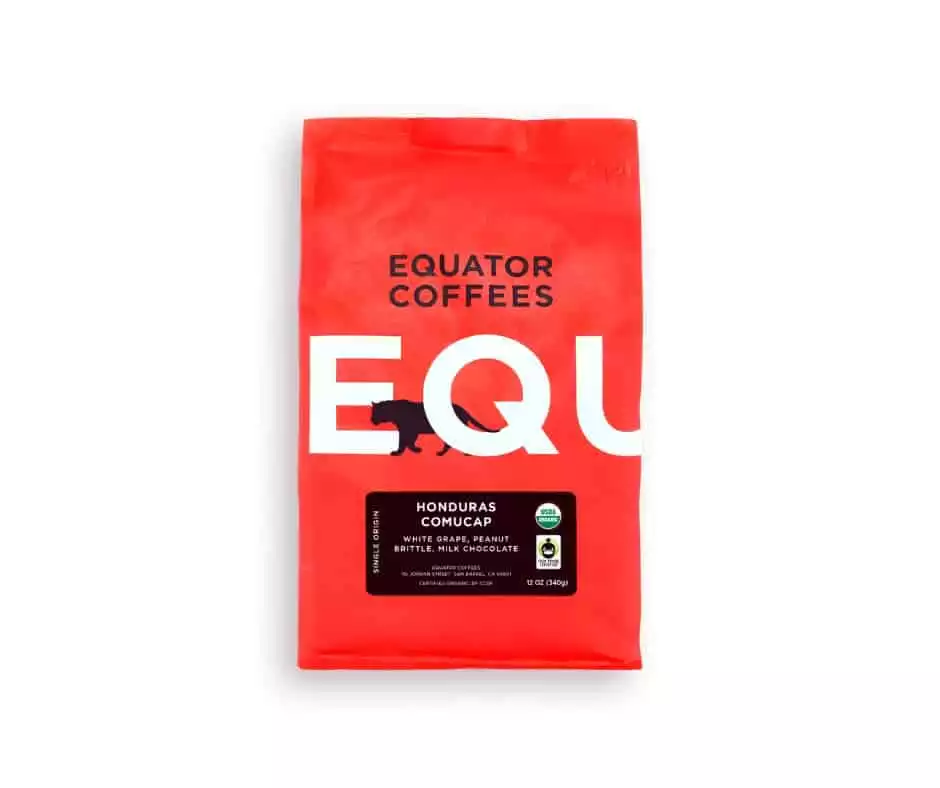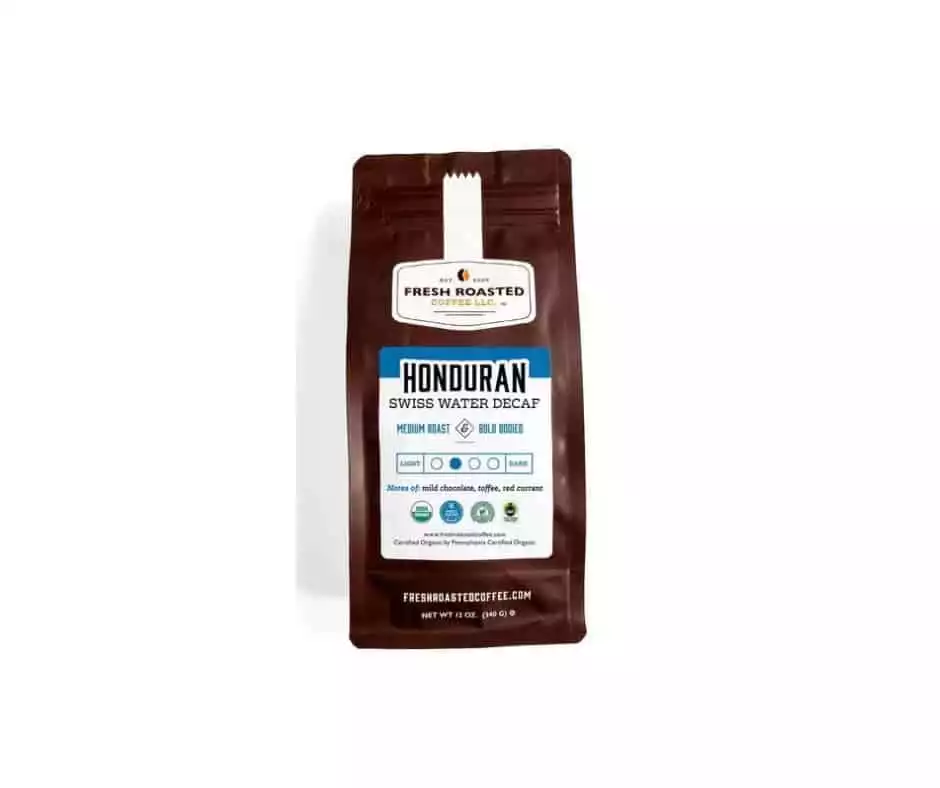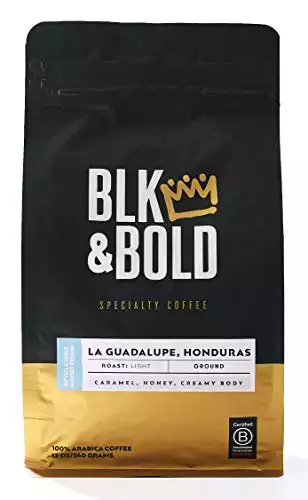The Ultimate Honduran Coffee 2024 Guide
Honduras’ reputation for coffee has only increased in recent years. The country and its farmers are steadily making its mark in the coffee industry, emphasizing taste and quality.
Whether you prefer light, medium-dark, or dark roasted beans, you’ll find Honduran coffee to be complex and delicious with a unique taste.
If you’re in a rush, here’s our top pick when it comes to Honduran Coffee:
A juicy medium roast with mild acidity. Notes of strawberry, cherry and pomegranate. Certified bird friendly too!
Alternative Honduras Coffee Brands
Starts with subtle notes of chocolate accompanied by nutty undertones. Ending with a bright and sweet lemon finish.
Medium-light roasted, with super sweet flavors of nougat, dark chocolate and peanut.
Deep flavor and balanced acidity, ending with a sweet finish but without the jitters!
Honduras Coffee History
Like other countries in Central America, coffee was not initially grown in Honduras. During the 18th century, traders brought coffee seeds from their travels, which spurred on coffee production in the country.
It was mostly grown by small coffee producers and farms located on the highlands of the country. Wide Scale coffee exports only started during the 1970s when Honduras’ government saw the potential in coffee as a cash crop.
This resulted in the creation of the Honduran Coffee Institute to encourage and educate farmers to cultivate coffee. Several legislatures were also passed to promote the fledgling coffee industry, and in time, Honduras saw an increase in coffee exports by 200%.
While Setbacks occurred during the late 90s with violent hurricanes and market crashes that ran through the country, the country has bounced back. As of the 2000s, Honduras coffee has shifted towards cultivating gourmet-quality beans, organic farming, and fair-trade practices.
Today, Honduran coffee is now the prime export of the country and is known for producing the highest quality coffee available.
Best Honduran Coffee Brands
1. Volcanica Coffee’s Honduras Natural Honey Process Coffee
Volcanica Coffee knocks it out of the park with this natural honey processed Honduran coffee. What makes it our top pick is its light body and fruity flavors.
A juicy medium roast with mild acidity. Notes of strawberry, cherry and pomegranate. Certified bird friendly too!
These medium roasted coffee beans come from Finca La Unica, a small coffee farm cultivating high-quality organic coffee in small batches. The beans are grown at an altitude of 1,400m above sea level, resulting in a longer maturing coffee that tastes sweeter than others.
The way this Honduran coffee is processed only adds to its complexity. Thanks to its balanced acidity with a flavor profile consisting of cherries, strawberries, pomegranates, and even red wine! It’s perfectly brewed as a manual brew to appreciate its flavor fully.
Roasted on-demand and available as both whole bean and ground coffee, there’s no excuse not to give this one a try!
If you want to taste unique flavors in your cup of coffee, these organic coffee beans are an excellent gateway for all that Honduras has all to offer.
2. Fresh Roasted Coffee’s Organic Honduran Marcala FTO Coffee
Espresso lovers agree that you’ll need the highest quality coffee beans to pull a perfect 1 ounce shot. Well, Fresh Roasted Coffee delivers and then some.
Starts with subtle notes of chocolate accompanied by nutty undertones. Ending with a bright and sweet lemon finish.
These beans originate from the province of Marcala, which is one of the most established coffee-growing regions in Honduras. They’re also certified fair trade and grown organically.
You can taste notes of chocolate and walnut, as well as overtones of lemon, especially when you brew it as espresso. Expect to find a rich and balanced shot with a heavy body, making it a good base for latte or cappuccino.
If espresso is the name of your game, Fresh Roasted Coffee’s Honduran Marcala coffee might be the best fit for your caffeine needs!
3. Equator Coffee’s Honduras Comucap Coffee
There’s a reason why Equator Coffees gave this Honduran coffee a unique sounding name. COMUCAP or Asociación Coordinadora de Mujeres Campesinas de La Paz is a local women’s cooperative located in Marcala known for cultivating high-quality coffee beans.
Medium-light roasted, with super sweet flavors of nougat, dark chocolate and peanut.
The beans are cultivated at around 1,200 – 1,800m above sea level, making it a strictly high-grown organic coffee. The result? A longer time to maturity, and more sweetness in your cup.
It’s recommended to brew it as a pour-over to take advantage of the sweet flavor and brightness from the lighter roast profile. You can enjoy balanced notes of chocolate, nougat, and white grape all wrapped up in a silky body.
If it’s a complex cup of coffee you’re after, you might find this the best Honduran coffee for you. Similar to our earlier pick, it’s also available whole bean or ground.
4. Fresh Roasted Coffee’s Honduran SWP Decaf Coffee
Often, decaf has a reputation for poor taste and lack of complex flavor. But, not in the case of this Honduran decaf from Fresh roasted coffee.
Deep flavor and balanced acidity, ending with a sweet finish but without the jitters!
It’s decaffeinated using the Swiss Water Process which removes 99.9% of the caffeine without compromising on flavor.
All while being eco-friendly since it’s certified USDA Organic, Fair-Trade, and Rainforest Alliance Certified.
When it comes down to flavor, this ones got a strong chocolatey kick. It’s a medium roast, full-bodied brew, and you can taste notes of chocolate, red currant, and toffee, which are the usual flavors for coffee grown in Copan.
You can choose from whole bean or different sized coffee grounds, which is a must if you want the most out of your Honduran coffee and don’t have a burr grinder.
If you prefer to drink your coffee like hot chocolate during the evenings, this organic Honduran coffee from Fresh Roasted Coffee is perfect.
5. Blk and Bold’s La Guadalupe Honduras Single-Origin Coffee
Finca La Guadalupe is a family-owned Honduran coffee farm located in the western part of the country. They are dedicated to growing high-quality beans for the past 40 years.
These particular coffee beans are strictly high-grown at 1,400 – 1,600m above sea level. Cutting out any middlemen, these beans are direct-trade too, ensuring the best compensation for the farmers.
With Blk & Bold at the helm, these Honduran coffee are lightly roasted, giving it pleasant acidity that goes along with its sweet taste. The notes of caramel, honey, and chocolate combined with a creamy body and rich aftertaste.
It’s available as whole bean and finely ground coffee, great for drip and french pressed coffee. Notably, 5% of Blk & Bold’s profits find their way to at-risk youths to support and nature them.
The Honduran Coffee Buyer’s Guide
Why is Honduran Coffee popular?
More and more specialty coffee enthusiasts are raving about coffee from the region of Honduras, but why?
It comes as no surprise that the coffee growers’ approach to quality instead of quantity is what’s making coffee in Honduras a must pick for specialty coffee fans. Especially, Bourbon Caturra and Catuai Pacas – both types of Arabica.
Trying a single cup of freshly ground coffee from this origin will have you yearning for more. Let’s dive into why that is below:
Typical Honduras Tasting Notes
Like with other coffee-growing countries, coffee grown in Honduras can vary from region to region.
As with most Central American coffees, beans from Copan and Agalta often have chocolate and caramel notes in flavor and aroma with a rich, bold, and creamy body. If you’re looking for a low acid coffee with hints of citrus, it will serve you well to look for beans from the Comayagua region.
For coffees grown in Opalaca while Montecillos, you can expect a bright and light-bodied coffee with sweet tropical fruit notes. Whereas, Montecillos or Marcala coffee often has concentrated hints of orange and peach.
El Paraiso takes its Honduran coffee to another level with its sweet and complex notes of blueberries, jasmine, green apple, peach, and even white wine.
These notes can also change depending on the roasting profile. Light to medium roast coffees can amplify the sweet fruity flavor and acidity of the whole bean, while going for a dark roast will often result in tasting more chocolate and caramel notes in your cup.
Primary Growing Regions in Honduras
The beans all come from 6 coffee-growing regions in Honduras located near the border of other countries in Central America.
Agalta: Compared to other coffee regions, Agalta is located further inland, where the climate is dry and humid. The coffee is grown along Sierra de Agalta at around 1,100m – 1,400m above sea level. The coffee cherries are harvested from December to March.
Comayagua: Like Agalta beans, coffee from the Comayagua region is typically harvested from December to March, where the coffee cherries are given more time to ferment the sugars. Most coffee beans are grown along the hills of Montana Los Comayagua and can range from 1,000m – 1,500m above sea level.
Montecillos: Also known as Café Marcala, coffees from the highlands of Montecillos have a velvety body with sweet fruity flavors and delicate acidity. Most Honduran Marcala coffees are strictly high-grown at altitudes of 1,200m – 1,600 above sea level with a December to April harvest season.
Opalaca: High-grown coffee from the Opalaca region tends to have delicate acidity with a sweet taste and hints of citrus. These beans are often harvested from November to February at elevations of 1,100m – 1,500m above sea level, giving the coffee cherries a chance to ripen evenly.
Copan: This coffee-growing region lies near Guatemala’s border, with elevations reaching from 1,000m – 1,500m above sea level. It’s known for its rich flavor and medium body, perfect for espressos. These Honduras coffee beans are hand-picked from November to March.
El Paraiso: Well-known for its complexities, Honduran coffee from this region can have delicate acidity with a smooth body. These beans are grown from 950m – 1950m above sea level and picked from December to March.
There are smaller farms in other regions that grow coffee in Honduras like La Labor, which produces in small batches, so keep an eye out when you’re looking for your coffee!
How To Brew
Are Honduran coffee beans better brewed using a Moka Pot, Espresso, or Pour-Over?
Well, like most things, coffee – it depends. They are versatile to fit most brewing methods, but it’s preferable to brew them according to their flavor profile and body that’s a good fit for you.
Coffee that has a citrusy and fruity taste tends to be lightly roasted. This greatly enhances the coffee beans’ acidity and flavor and is better to be brewed as a pour-over. These lighter shade coffee beans are also more porous therefore, the compounds in the bean are extracted more slowly compared to dark roast profiles.
Medium-dark roast profiles are perfect as a base for espresso drinks as more of the ground coffee’s soluble compounds are extracted. Medium roasts are less acidic, often with notes of chocolate, nuts, caramel, and brown sugar in a rich body. Low acidity is also essential for milk-based drinks as it ruins the flavor.
While they might be useful guidelines, there is no single best way to brew. It’s better to brew a cup of coffee depending on your taste, so feel free to experiment with different roast profiles with your Honduran coffee beans.
The Final Verdict
Our top pick for the best Honduran coffee beans is Volcanica Coffee’s Honduran Natural Honey Process coffee! It’s brew versatility, and tart like flavor wins here.
A juicy medium roast with mild acidity. Notes of strawberry, cherry and pomegranate. Certified bird friendly too!
Nonetheless, Fresh Roasted is best for a single sweet cup of Honduran espresso too. If you primarily brew espresso, check it out!
Starts with subtle notes of chocolate accompanied by nutty undertones. Ending with a bright and sweet lemon finish.
Just remember that coffee can be an adventure, so keep trying out new single-origin beans from time to time and keep being caffeinated!
Frequently Asked Questions
Where does Honduras grow coffee?
Most Honduran coffee beans are grown in the western part of Honduras near El Salvador and Guatemala’s border. Here, the climate and altitude align perfectly for growing Arabica beans with complex flavors, suited to the specialty single-origin coffee trade.

